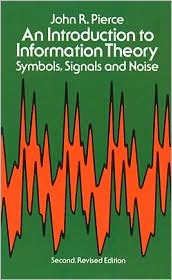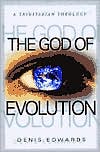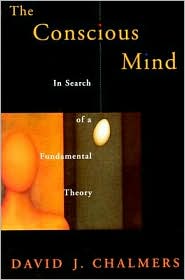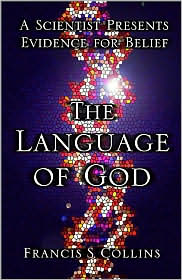The Search for Extra-Natural Intelligence? (I.D. X)
At any rate, I continue to read the book. Section 4.4, "The Cure: Intelligent Design," finally begins to lay out (starting on p. 104!) what intelligent design theory is and what particular methodology Dembski proposes. Specifically, Dembski writes (p. 105), the "fundamental claim" of intelligent design theory
... is that intelligent causes are necessary to explain the complex, information-rich structures of biology and that these causes are empirically detectable.
So, obviously, methods of detecting "information" or "information content" are central to intelligent design theory. This is because:
Intelligent design properly formulated is a theory of information [which is seen as] a reliable indicator of intelligent causation as well as a proper object for scientific investigation.
Why is "information" so important?
Whenever [such scientific modes of inquiry as forensic science, artificial intelligence ... , cryptography, archaeology and the search for extra-terrestrial intelligence] detect intelligent causation, the underlying entity they uncover is information.
So "information," whatever else it may be — Dembski's formal definition is still to come — is presumed by Dembski to be a "reliable indicator of intelligent causation." If we can find "information" in "the complex, information-rich structures of biology," accordingly, then we can assume that this finding has been intelligently caused.
 |
| SETI: Mexico Radiotelescopes |
If any real information is located — so far, none has been — it must be a sign of intelligent life elsewhere in the galaxy. Or, as Dembski would say, there must have been "intelligent causation" behind these signals. Extending the analogy, we can call Dembski's own initiative a "search for extra-natural intelligence."
My problem with this, as I have said, is that I see no reason to expect that God's activity vis-à-vis biological evolution — if such activity exists and (pace atheists) if God exists — is like a "signal" that we can separate, as "information," from "background noise."
That basic problem bifurcates into two sub-questions:
- If we do get a "positive" from Dembski's information search, how do we know it's not a "false positive" whose actual cause is imponderable?
- If we get a "positive" from Dembski's information search, how do we know it's not the result of the naturalistic laws of self-organization which Stuart Kauffman extols in At Home in the Universe?
Sub-question one is something I raised in my earlier post when I said the "information content" of biological nature — in ecosystems, species, organisms, eyes, DNA — may be like a disconnected point in an electronic circuit which can be metered at any spurious voltage. Is there any guarantee that all detectable "information" bespeaks something meaningful, much less intelligent design? Maybe the "information" just happens to be there.
Sub-question two asks how we can be sure that this "information content," even if it doesn't just happen, betokens intelligent agency or design as such. Even if most information-bearing things we encounter were designed, some things may simply self-organize. Here, I assume that Stuart Kauffman's theory of self-organization in undesigned natural systems is a way of accounting for these systems' "information content" as Dembski will (eventually) define it.
So, just because all intelligent beings can produce "information content" doesn't mean that all "information content" is produced by intelligence. "Information" may just be there for no ponderable reason (sub-question 1) or it may be produced by natural laws of emergent self-organization (sub-question 2).
Neither of these possibilities, to my mind, logically excludes a God behind nature. For instance, with respect to sub-question one, we customarily say God works in mysterious ways. It should come as no surprise to us believers in God that the universe as a whole is "just there" because God said so. We don't expect to need to meter the "information content" of the cosmos to confirm God's creation thereof.
Nor does the possibility that the "information content" we can detect in earthly life forms arose according to natural laws of emergent self-organized complexity — sub-question two — exclude a God behind those laws.
There is yet another problem I find with Dembski's argument: Dembski insists on excluding from consideration an outlook he calls "theistic evolution" (see pp. 109ff.).
 |
| Howard Van Till |
... accept that the biological community has essentially gotten the scientific theory of evolution correct ... [but] empty creation of empirical content ... [and] never specify what difference their thesis makes for their science. Only if their theism makes a concrete, empirical difference for their science could they be regarded as design theorists. (n. 17)
The theistic evolutionist would deny that these natural processes [i.e., evolutionary ones] are in fact undirected. But to claim that they are directed [by God] is not an empirical statement ... but a statement of faith. (n. 18)
That word, directed, and its antonym, undirected, are more important than they may at first seem. To wit, here is a typical statement of Dembski's:
To say intelligent causes are empirically detectable is to say there exist well-defined methods that on the basis of observational features of the world are capable of reliably distinguishing intelligent causes from undirected natural causes. (p. 106, italics mine)
Once again, we are being led down a garden path to a false dichotomy with an artificially excluded middle possibility, an error of argumentation also known as a false dilemma. Dembski's particular "fallacy of presumption" simply assumes that there are two possible explanations for complex "information content" in living things, and only two: "intelligent causes" (which are presumably directed) and "undirected natural causes."
But theistic evolutionists claim there is a third, middle option: directed (but undesigned) natural causes which have no "information content," no empirical detectability, and no scientific demonstrability.
Dembski's argument against that excluded middle position is that it allegedly makes God "a master of stealth who constantly eludes our best efforts to detect him empirically" (p. 110). From the author's perspective:
Theistic evolution places theism and evolution in an odd tension. If God purposely created life through Darwinian means, then God's purpose was ostensibly to conceal his purpose in creation. ... Yes, the theistic evolutionist believes that the universe is designed. Yet insofar as there is design in the universe, it is design we recognize strictly through the eyes of faith. (p. 110)
This is a bad thing, this insistence by God that we recognize his fingerprints on creation "strictly through the eyes of faith"? Isn't the Bible all about how good faith is?
At any rate, at this point Dembski launches into a discourse about theologians' differences, down through Christian history, as to how weak or strong our "native intellect" is. It's as if our mental weakness is the only imaginable explanation we might offer for why we feel we "can discover no reliable evidence" of God in nature. It's as if Dembski thinks he is rescuing us from erstwhile claims of mental weakness with his theory of intelligent design.
But what if the weakness of our "native intellect" is not the real reason God "purposely created life through Darwinian means"? What if the "only imaginable" assumption is not that God foreguessed our impotence to decipher whatever empirically detectable means he may employ, and so contented himself with undetectable means?
What if, for example, God withheld "empirical content" from evolution because not so doing would have made evolution deterministic? What if deterministic evolutionary pathways cannot, for metaphysical reasons, produce free-willed creatures? What if the explanation for the "odd tension" Dembski so rues is not epistemological at all, but ontological?
What if, that is, God simply couldn't drop informational bread crumbs along the evolutionary route to Homo sapiens because that was ontologically, metaphysically impossible, assuming our species was to wind up having free will?
Paul's Letter to the Hebrews 11:1 reads: "Now faith is the substance of things hoped for, the evidence of things not seen" (King James Version). Perhaps we need faith because the evidence of things that are seen can never be enough to demonstrate God's hand on the tiller of our evolutionary history. Perhaps that is the price we pay for our essential freedom.
I am arguing that our faith is required not for epistemological reasons but for ontological ones. Indeed, reading between the lines, I find Dembski's argument for intelligent design imbued with his nearly obsessional assumption that these issues ought to be settled in an epistemological courtroom, rather than in an ontological or metaphysical one.
Epistemology is the branch of philosophy which asks what we can know and how we can know it. Ontology, within metaphysics, is the branch which seeks the "first principles" of being or existence. On its basis we can ask questions the likes of which include whether free-willed beings can exist as such, and, if so, whether they can evolve by a process that also supports empirical detectability of divine direction.
If ontology tells us our essential freedom crucially depends on there being an absence of empirical "bread crumbs" along evolutionary pathways, then epistemology has to fall silent. Any "information content" we may "detect" in life as we know it must have another explanation ... or none at all. Thus does faith become our best or only avenue to God.
I would suggest accordingly that we lean more heavily on the Bible in our search for extra-natural intelligence, and less heavily on claims of empirical detectability which seem to be born mostly of an unwillingness to treat pure faith as something better and stronger than any mere set of beliefs.


















0 Comments:
Post a Comment
<< Home